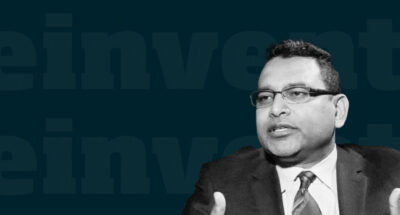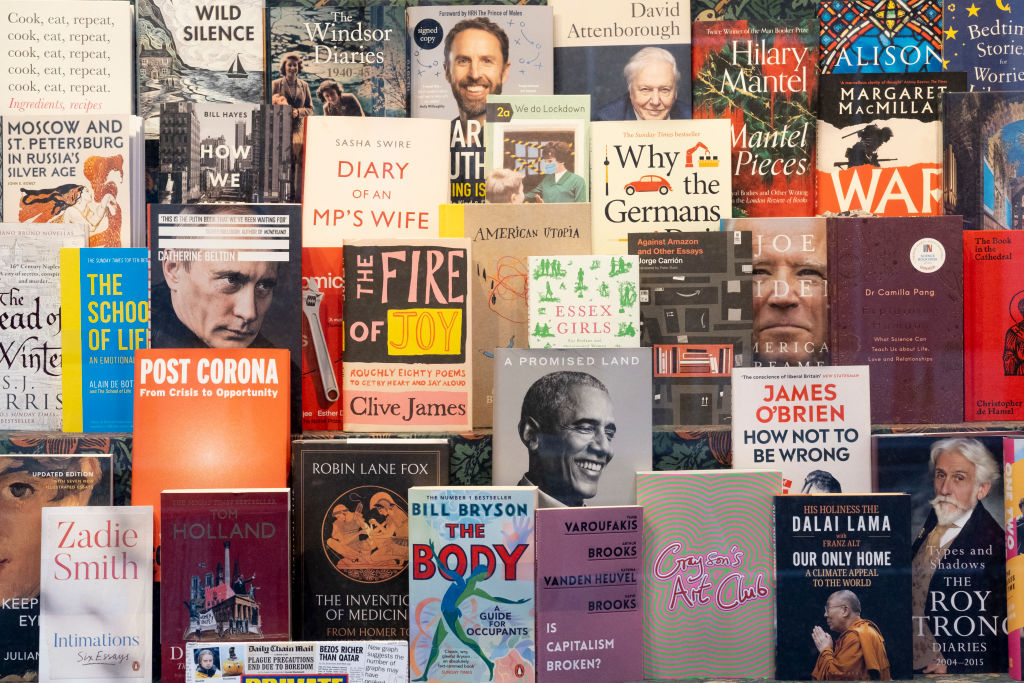
5 ways to kick bad habits
In this month’s I by IMD Book Club, best-selling author Faisal Hoque explains how the concepts in his new book, Reinvent: Navigating Business Transformation in a Hyperdigital Era, can help us...

by Philip Rosenzweig Published 18 March 2021 in I by IMD Book Club • 4 min read
No doubt you have your personal favorite kind of reading, whether novels or science fiction, mysteries or adventure or some other genre that gives you pleasure. But when a business person reads, it may not be primarily for enjoyment. The books we will read in this club are not “business books” as much as they are books chosen for business people: they’re intended to challenge received ideas and expand your thinking.
Most have a practical aim. While we won’t include instruction manuals that tell you what to do, most books are indirectly practical, in that they can help a manager act ways that are effective and useful.
The books we will read are mostly in the social sciences: economics, politics, technology, psychology. While they will all be accessible for the non-specialist, they nevertheless call on the thoughtful efforts of the reader.
With that in mind, it’s worth revisiting a few ideas set out by Mortimer J. Adler in How to Read a Book: The Classic Guide to Intelligent Reading.
The first edition was published in 1940, when radio was a mass medium. Adler asked: What is the value of reading in the age of radio? A second edition appeared in 1972, by Adler and Charles Van Doren, and asked: How should people read books, when so much information is received from television? Today, in the age of the Internet and smartphones, Google and Twitter, with information rarely more than a click away, the questions of how, why and what we read are more pertinent than ever.

The first two questions are important for all readers to keep in mind, but our discussions will focus mostly on the third and fourth.
The third question, on truth, touches on the most important elements of critical thinking. It asks the reader to actively engage the material and to bring his or her independent thinking to bear. Some further questions include these:
The fourth question – so what? – also leads to useful questions, and speaks to the eventual practical nature of the book:
Asking whether we accept what is presented as true, and what we might do about it, are the questions we will come back to again and again.
As we do so, Adler and Van Doren stress the importance of “suspending judgment.” Before discerning whether you agree with the author, it’s vital to understand fully what is being said – and that calls for having an open mind. Suspending judgment is especially important for the books we will read, which fall under the broad category of social science. While most books we will read are quite accessible, and not esoteric or specialized, they also run a risk, since “you as the reader are likely to have some view of the matter your author is considering.” If we are not careful, opinions can become prejudices, which prevent us from absorbing fully what is said.
Hence the need to “check your opinions at the door,” to open our minds and suspend judgment. Adler and Van Doren say: “Though it may not be obvious at first, suspending judgment is also an act of criticism. It is taking the position that something has not been shown. You are saying that you are not convinced or persuaded one way or the other.”
I urge you to take a thoughtful and discerning approach while reading these books. Open your mind and suspend judgment while trying to understand what the author is saying, and then to apply your faculties of judgment to think for yourself, accepting what you find valid and calling into question what you do not.

Professor of Strategy and international Management
Emeritus Professor Phil Rosenzweig has been Professor of Strategy and International Management at IMD since 1996. He directed IMD’s Executive MBA program for six years. He is the author of The Halo Effect and Eight Other Business Delusions that Deceive Managers.

19 October 2023 • by Faisal Hoque in I by IMD Book Club
In this month’s I by IMD Book Club, best-selling author Faisal Hoque explains how the concepts in his new book, Reinvent: Navigating Business Transformation in a Hyperdigital Era, can help us...

13 October 2023 in I by IMD Book Club
IMD professors recommend books to help you think differently about the challenges posed by sustainable business transformation....
Explore first person business intelligence from top minds curated for a global executive audience